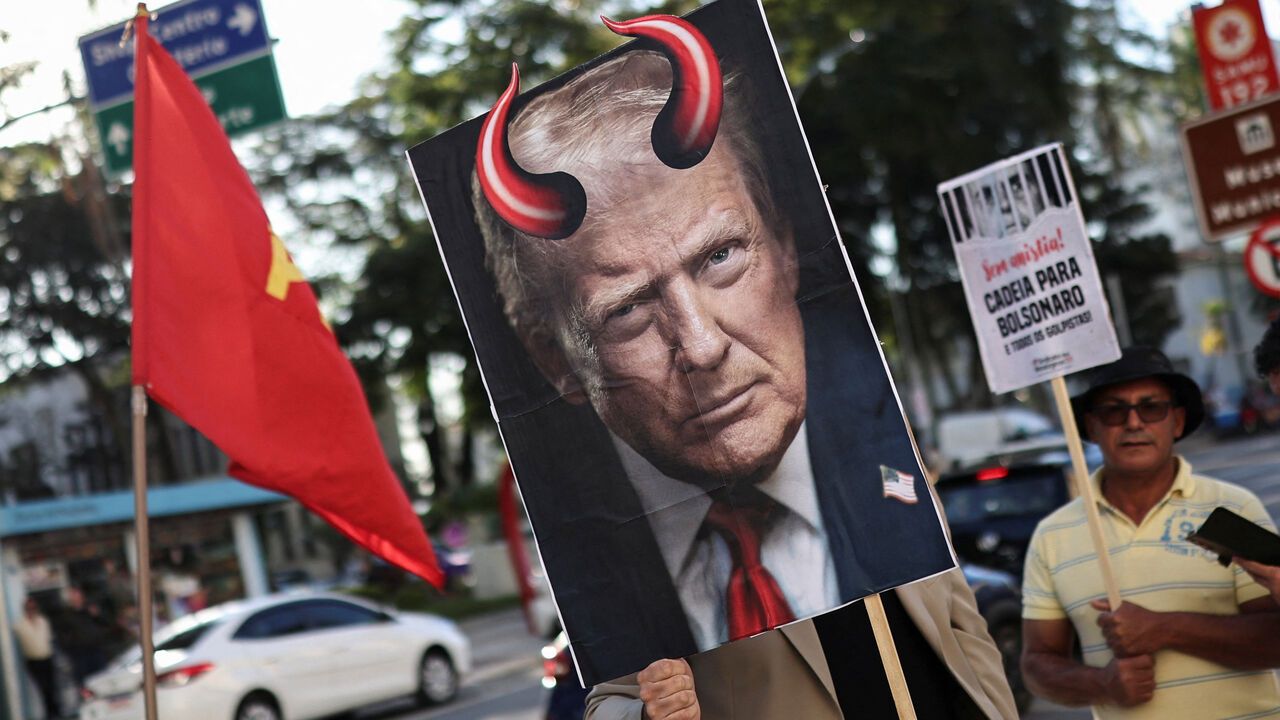Articles in this Cluster
09-08-2025
The article discusses the current political landscape in Argentina under President Javier Milei, questioning whether the Peronists, a historically dominant political force, can stop him. Despite his government's irritability, Milei has achieved significant economic successes, including cutting spending, reducing inflation, and lowering poverty. The Peronists, however, are in disarray and primarily hope for Milei's government to fail.
Entities: Javier Milei, Argentina, Peronists, The Economist, Buenos Aires • Tone: analytical • Sentiment: neutral • Intent: inform
09-08-2025
The article discusses how Donald Trump's trade policies, characterized by high tariffs and 'imperial preference,' are likely to persist beyond his presidency. Trump's approach has led to a shift away from rules-based trade, stability, and low tariffs, with countries like the EU, Japan, and South Korea making deals with the US to mitigate threats. The policy is based on Trump's belief that trade deficits are a form of theft, resulting in 'reciprocal' tariffs on numerous trading partners.
Entities: Donald Trump, America, Canada, India, EU • Tone: negative • Sentiment: negative • Intent: critique
09-08-2025
The article discusses Donald Trump's recent tariffs imposed on Brazil, arguing that despite the steep 50% rate, Brazil may have avoided the worst of the trade war due to its trade dynamics with the US. Brazil imports more from the US than it exports, potentially mitigating the impact of the tariffs. The article is set against the backdrop of Trump's broader trade policies and their implications for various countries in the Americas.
Entities: Donald Trump, Brazil, United States, The Economist, Latin America • Tone: analytical • Sentiment: neutral • Intent: inform
09-08-2025
The article discusses Donald Trump's unprecedented attack on Brazil's judiciary by imposing sanctions on Alexandre de Moraes, a Brazilian Supreme Court judge, under the Global Magnitsky Act. The sanctions freeze Moraes' assets in American banks and prohibit him from entering the United States. The move is seen as a warning to those who would trample on human rights, with Marco Rubio, the US Secretary of State, defending the action on social media.
Entities: Donald Trump, Brazil, Alexandre de Moraes, Jair Bolsonaro, Marco Rubio • Tone: neutral • Sentiment: negative • Intent: inform
09-08-2025
Former Colombian President Álvaro Uribe has been convicted of arranging the bribing of witnesses and perverting justice. The verdict was delivered by Judge Sandra Heredia after a lengthy trial, marking the first time a Colombian president has been found guilty in court. Uribe, who served as president from 2002 to 2010, faces up to eight years in jail, although he may be allowed to serve under house arrest due to his age. His lawyers plan to appeal the decision.
Entities: Álvaro Uribe, Colombia, Judge Sandra Heredia, Colombia's judiciary, The Economist • Tone: neutral • Sentiment: negative • Intent: inform
09-08-2025
The article argues that top management consulting firms like McKinsey need to adapt their strategies and be more humble in the face of emerging technologies like AI, which could either enhance their effectiveness or make them redundant. It questions the long-standing value of management consultancy and suggests that these firms must evolve to remain relevant.
Entities: McKinsey, AI, management consultancy, The Economist, China • Tone: analytical • Sentiment: neutral • Intent: critique
09-08-2025
The article discusses the potential economic impact of the tariffs that Donald Trump plans to unveil on April 2nd, 2025, dubbed 'Liberation Day'. It argues that these tariffs will hurt economic growth, raise prices, and worsen inequality in America.
Entities: Donald Trump, America, April, The Economist, Washington, DC • Tone: analytical • Sentiment: negative • Intent: analyze
09-08-2025
The US is set to impose new secondary tariffs on countries trading with Russia amid its ongoing conflict with Ukraine. President Donald Trump announced the tariffs, which could amount to 100% on nations that continue to trade with Russia, particularly affecting China and India. The move is part of Trump's shifting strategy towards Russia and its president, Vladimir Putin, as he seeks to end the war in Ukraine. The tariffs are expected to pressure Putin to agree to a ceasefire, although some Republican members, like Sen. Rand Paul, have expressed concerns about the impact on the US economy.
Entities: Donald Trump, Russia, Ukraine, Vladimir Putin, China • Tone: neutral • Sentiment: neutral • Intent: inform
